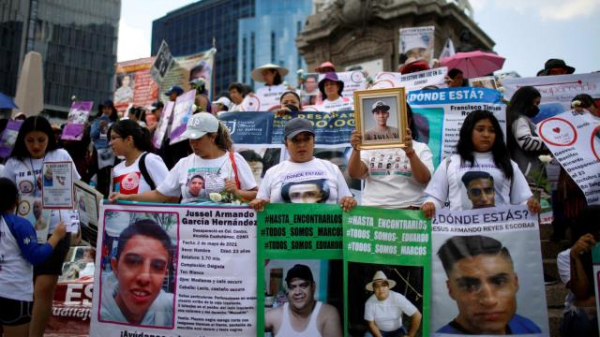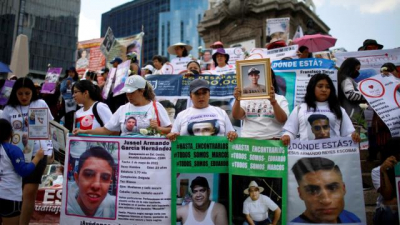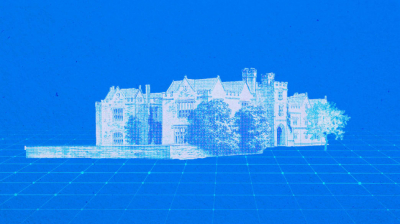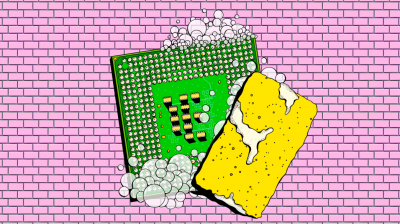Unmasking the Lost: AI Deepfakes in the Quest for Mexico's Missing
In Mexico, AI Deepfakes Spearhead the Search for the Missing: A Powerful Tool in the Hands of Desperate Families
Mexico's haunting reality bears witness to over 100,000 souls vanished, casualties to the brutal interplay of state and cartel violence. Amid this desolation, a beacon of hope emerges: a group harnessing AI deepfakes to amplify the voices of the lost.
Picture this: Héctor Daniel Flores Fernández, a victim of abduction from Guadalajara, Mexico, his whereabouts shrouded since May 18, 2021. Yet, in a stirring video, he implores authorities for his rescue, his plea resounding with urgency. But here's the twist—Héctor's lips do not form these words; instead, it's the eerie cadence of artificial intelligence, breathing life into his likeness.
This innovative endeavor is the brainchild of Luz de Esperanza, a coalition of bereaved families from Jalisco, and Alas de Libertad, a grassroots network dedicated to supporting victims of violence and disappearance. Their mission: to humanize the staggering statistics, revealing the systemic nature of these disappearances.
Throughout Mexico, the specter of vanishing haunts communities ravaged by violence, trafficking, and forced labor. In the face of political inertia and rampant corruption, families are left to navigate the labyrinth of loss with scant resources. But armed with AI, they embark on a revolutionary crusade to confront government complacency.
With Mexico's presidential election looming, scrutiny intensifies as the government unveils a dubious "census" of the missing, conveniently downplaying the crisis. Families decry this as an act of further erasure, accusing authorities of 'disappearing the disappeared.'
For Héctor Flores, co-founder of Luz de Esperanza and father to Héctor Daniel Flores Fernández, this is more than a battle for justice—it's a quest for recognition, empathy, and dignity. In his words, "This tends to victimize, re-victimize, and criminalize, not only the disappeared but their families.
In the twilight of uncertainty, AI deepfakes emerge as a potent weapon in the fight against oblivion—a testament to the resilience of the human spirit in the face of darkness.
Echoes of Longing: AI Deepfakes as a Balm for Grieving Hearts in Mexico
In the desolate landscape of vanished hopes, the emergence of AI-generated videos offers a fleeting solace to shattered families, breathing life into the silent echoes of their missing loved ones. Miguel Ángel Gómez Aguilar's journey with Luz de Esperanza began two years ago, a reluctant pilgrim propelled by the disappearance of his daughter, Yesenia Araceli Gómez Castañeda. The haunting memory of their last conversation on March 3, 2022, when she pleaded for her son's retrieval from school, lingers like a specter in Gómez's heart.
The videos, a digital resurrection of their beloved kin, unleash a torrent of emotions, wrenching open old wounds with brutal precision. For Gómez, witnessing Yesenia's spectral presence, her voice imbued with artificial life, is a visceral assault on his grieving soul. "It was very hard for me to see my daughter speak again... Seeing her again and listening to what she is narrating," he confides, his voice trembling under the weight of unshed tears.
For others, like Flores, the experience is too agonizing to endure. The specter of his son, Héctor, recounting his abduction by alleged police officers, a cruel mirage of a past he longs to forget. "It is a very re-victimizing situation that returns you to day one... It transports you to the day when everything happened, so it is very, very, very complicated," Flores reflects, grappling with the raw anguish of loss.
In the shadows, Alas de Libertad, a silent guardian of the disappeared, toils tirelessly, crafting over 100 AI-generated tributes for families across Mexico. Yet, their task is fraught with challenges; the scant quality of provided images, a stark reminder of the desperation that plagues these fractured families. "Unfortunately, some families only have that single photograph of their loved one," a spokesperson laments, their words echoing the depths of deprivation.
Amidst the labyrinth of uncertainty, Luz de Esperanza stands as a bastion of resilience, undeterred by threats and adversity. The courage of their convictions propels them forward, defiant in the face of intimidation. "Some families have received threats to take down the videos," they acknowledge, their resolve unyielding. "Yet, they continue to share them... fueled by the unwavering support of kindred spirits.
But the road ahead is fraught with peril, a treacherous path strewn with obstacles. Gómez, tasked with the grim duty of scouring for clandestine graves, grapples with the stark reality of limited resources. Despite their valiant efforts, the specter of indifference looms large, casting a shadow over their noble crusade.
In the twilight of despair, AI deepfakes emerge as a fragile lifeline, a beacon of hope in the gathering darkness. Amidst the cacophony of silence, they whisper tales of remembrance, a testament to the resilience of the human spirit in the face of adversity.
In Chile and Mexico, AI Illuminates the Path to Justice for the Disappeared
In a bid to unravel the shroud of silence that cloaks decades-old atrocities, Chile's President Gabriel Boric unveiled a groundbreaking initiative: the integration of AI into the nation's search efforts for over 1,000 souls swallowed by the darkness of the Augusto Pinochet dictatorship. Spearheading this endeavor is Unholster, a pioneering firm specializing in software development and data analysis.
Tasked with the Herculean feat of digitizing mountains of archival material, Unholster embarks on a quest to resurrect the past, transforming handwritten and typewritten documents into searchable data troves. Antonio Díaz-Araujo, the company's stalwart leader, elucidates the arduous journey ahead. "The disappearances in Chile occurred during an absolutely analog period," he notes. Thus, the journey begins with the digitization of court records, photographs, and reports, laying the foundation for AI algorithms to weave their magic.
Yet, amidst the promise of technological innovation lies a stark reality: the scarcity of skilled human capital. "Finding talent, retaining it, and fostering collaboration is paramount," Díaz-Araujo asserts, underscoring the uphill battle faced in an era of brain drain.
Meanwhile, in Mexico, echoes of this struggle reverberate. Miguel Ángel Gómez, a tireless advocate for the disappeared, poses a poignant question: "What is the point of having so much technology if there are no people to manage it?" Indeed, the Alas de Libertad team, spanning 40 individuals across the globe, grapples with the Herculean task of creating AI-generated videos each week, their mission fueled by a fierce sense of urgency.
In the face of mounting challenges, Luz de Esperanza's resolve remains unshaken. Armed with a vision of justice, they press on, their efforts punctuated by the harsh realities of resource scarcity. "We are practically against the clock," laments Alas de Libertad's spokesperson, their words echoing the urgency of their mission.
Yet, amidst the tumult, a glimmer of hope emerges—a testament to the indomitable spirit of those left behind. Every week, amidst the sea of indifference, families take to the streets, their hands laden with missing persons posters, their voices a defiant cry against the silence.
For them, the AI videos serve as more than mere digital artifacts—they are beacons of remembrance, symbols of resilience in the face of oblivion. Though they may never erase the pain of absence, these digital avatars bestow upon the disappeared a voice—a voice to speak truth to power, and perhaps, to usher in the dawn of justice, wherever they may be.
In the corridors of history, where shadows of injustice linger, the convergence of technology and human perseverance illuminates a path forward. From the dark chapters of Chile's past to the ongoing saga of Mexico's missing, the journey for truth and reconciliation is fraught with obstacles. Yet, amidst the tumult, a steadfast resolve emerges—a testament to the resilience of the human spirit.
As AI breathes life into the silent testimonies of the disappeared, it does more than unveil the horrors of the past; it offers a glimpse of hope for a future anchored in justice. Though the road ahead may be treacherous and the challenges formidable, the collective voice of those left behind echoes with unwavering determination.
In the face of adversity, they press on, armed with the belief that every poster hung, every video shared, brings them one step closer to uncovering the truth. And while the AI videos may not erase the pain of absence, they serve as a poignant reminder that even in the darkest of times, the power of remembrance can spark a flame of change.
In the end, as the voices of the disappeared echo through the corridors of power, may their stories serve as a rallying cry for justice—a testament to the enduring spirit of those who refuse to be silenced, and a beacon of hope for a world where truth and reconciliation reign supreme.







